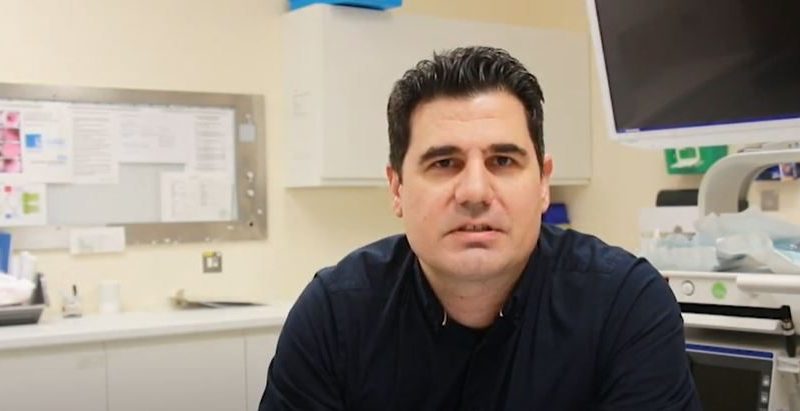
North Tees and Hartlepool NHS Foundation Trust has launched a new “express” rapid diagnostic service to quickly diagnose potentially serious illnesses.
GPs can now place patients with ‘nonspecific symptoms’ which could be linked to cancer or other illnesses onto the new rapid diagnostic service pathway. Here they will be seen by hospital specialists within two-weeks.
The Trust is keen to stress that being placed on the rapid diagnostic service pathway does not necessarily mean they have cancer. This is, however, a possibility, and swift actions are required for further diagnosis.
About the rapid diagnostic pathway
Rapid diagnostic service
Dr Roisin Bevan, consultant gastroenterologist: I’m going to talk to you today a little bit about our new serious non-specific symptoms referral pathway.
Currently if your GP has concern that you might have something sinister like a cancer, they refer you into hospital into the specialty that fits your symptoms best.
If you go to see your GP with a cough, they will refer you to lung specialists.
If you find a lump in your breast, you will be referred to the breast team.
But sometimes your symptoms do not fit neatly into one category specifically. And what we know is that people who don’t fit neatly into one box sometimes have a less clear pathway through the investigations.
So the new serious non-specific symptoms referral pathway has been set up in order to try and help those people get a clearer route through their investigations and get the treatment they need.
So you will still go to your GP in the same way with your symptoms. But in some situations now, the GP will refer you into this new pathway.
It is what we call a two week-rule pathway. The main aim is to make sure that there’s not a cancer or if there is a cancer there that we get your treatment started as quickly as possible.
We expect that most people who get referred into this pathway probably won’t have a cancer. But it’s important for us to know if you do or you don’t so we can get things moving for you and reassure you.
The benefit of this pathway is that it allows us to get the right tests done quite quickly.
We think that most people will go straight to having a CT scan of most of the body to see if we can find where the problem lies.
For a lot of people that going to be reassuring and your GP will be happy for us to send you back to them reassured so that you can move on with any treatment you need.
But in some cases we will find a diagnosis. Whether that’s a cancer or whether that’s something else serious or specific to a specialty that we can refer you on to. And in those situations we’ll put you on to the right pathway to get treatment started.
We hope that this means you will have a smoother route through your investigations and you won’t bounce between different teams and you are under the right person at the start.
So don’t worry if you’re referred in through this pathway. We think that most people won’t turn out to have a cancer. But it allows us to be able to put your mind at rest and move things on with your GP who will get things moving if we do need to start some treatment for you.
What does it mean for patients?
Gastroenterology consultant Dr. Iosif Beintaris said: “When GPs assess a patient as having symptoms that are likely linked to a specific cancer, the patient is placed on one of the well-established, existing two-week referral pathways. We aim for an appointment within two-weeks to start diagnosing their condition, so they can begin their treatment immediately if cancer is eventually diagnosed.
“However, some patients have symptoms that do not present as clear signs of possible cancer. But may still turn out to be cancer.
“We don’t want these patients waiting for their diagnosis. Our new rapid diagnostic service will make sure these patients are seen swiftly. So we can diagnose and plan their care accordingly.”
The region’s GPs have been briefed on the new service and can refer patients from their surgery computer using a secure online booking process.
The Trust is appealing to any patient placed on the rapid diagnostic service to ensure they attend their appointment, while following all COVID-19 safety procedures.
The diagnostic process will likely involve an endoscopy or CT scan carried out by qualified medical experts.
